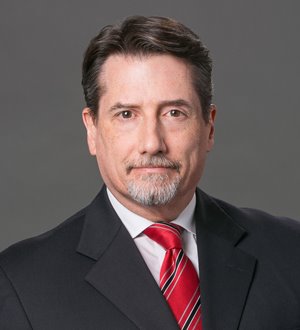It is becoming increasingly common for spouses of retirement age to file for divorce. Requests for spousal maintenance (alimony) are a frequent issue in these types of cases, as most couples face significant reductions of income. This is especially true for a spouse who has not worked outside the home and has little or no job experience. As a general proposition, most courts hold that divorcing parties are not required to invade their retirement “nest egg” or to sell assets in order to cover living expenses. Consequently, retirement assets are routinely not considered in calculating a spouse’s request for spousal maintenance. However, this approach, while perhaps appropriate for younger parties, is not necessarily appropriate for retirement age parties.
In most instances, the touchstone for determining the amount and duration of spousal maintenance is the requesting spouse’s established financial “need” for such maintenance. Once the court determines the requesting spouse’s reasonable and necessary living expenses, the court will then offset those financial “needs” with income (i.e., cash flow) that the spouse can receive from (1) realistic employment; (2) income-producing assets (e.g., rental properties or investment accounts); and (3) any other source. In most cases, the court will not include the requesting spouse’s retirement assets as part of this equation on the grounds that a party should not have to “use up” their retirement “nest egg” by invading principles or selling assets in order to subsidize his or her living expenses. The courts are also cognizant that access to retirement assets is often restricted and that parties cannot readily access these assets without penalty. However, this thinking does not necessarily apply to the retirement age spouse.
Two factors militate against applying the standard “nest egg” approach to retirement age spouses receiving spousal maintenance. First, the entire premise of preserving a retirement “nest egg” is to have it available for use at retirement. After all, that is what retirement assets are for. In this regard, the purpose of spousal maintenance is not to preserve spouses’ wealth so that they can pass it on to their heirs: it is intended to allow a spouse to cover their current living expenses.
Second, a unique feature of retirement age spouses is their access to various retirement assets to supplement their income and subsidize living expenses. As parties age, their ability to access retirement assets increases. For instance, spouses may have access to one or more of the following benefits, which can be used to offset a claimed “need” for spousal maintenance:
IRAs
A spouse can access an IRA at age 59.5 without penalty. Mandatory withdrawals are required at age 70.5. A party can access an IRA before age 59.5 without penalty under Rule 72(t) if they commit to take a set periodic payment over a set period of time determined by the IRS (termed “annuitizing”).
401(K) Plans
A spouse can access a 401(k) plan at age 59.5 without penalty. A spouse can access a 401(k) plan at age 55 if they retire, quit, or are fired the year they turn 55 or later and the 401(k) plan is related to that employment.
Social Security
A spouse is eligible for receiving social security payments at age 62, although at a reduced amount. Full benefits are payable at a later age (currently 66). Delaying payments until age 70 will increase the amount of the payments. A spouse who was married for 10 years has the option of taking an amount equal to up to half of their ex-spouse’s social security payments if those payments would be higher than their own payments.
Private Pensions
Spouses often have the ability to access private and state pension plans at earlier ages. These should obviously be investigated on a case-by-case basis.
Medicare
Benefits are available for people 65 and over.
----------------------------
Leonce A. Richard is a partner with the law firm of Dickinson Wright PLLC. His practice for the past 30 years has focused on family law and divorce cases. He has been a certified specialist in family law for the past 15 years and is a fellow with the American Academy of Matrimonial Lawyers. He has been listed with Best Lawyers® for a number of years.





















